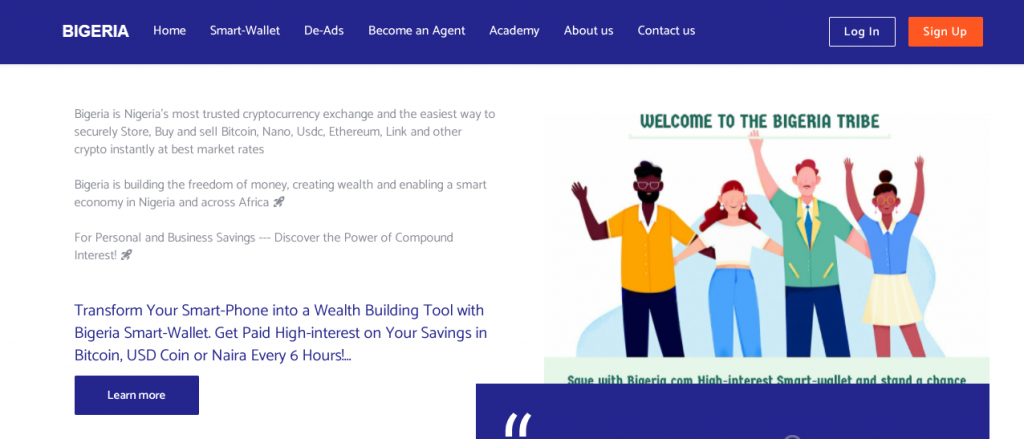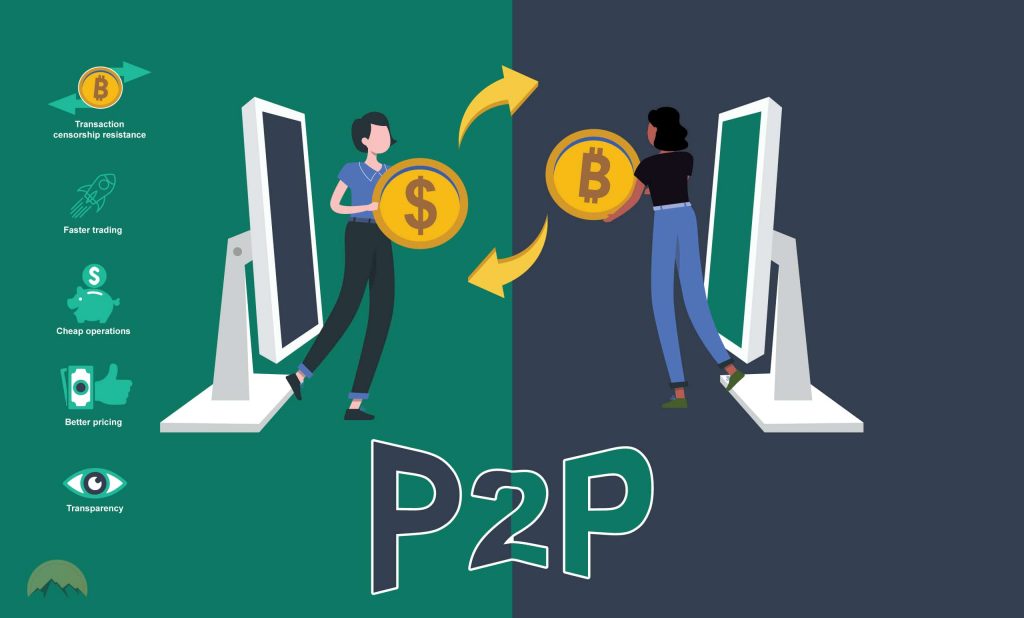A decade ago, crypto exchanges were not so many or so popular in Nigeria. Bitcoin itself was only just 2 year old in 2011 and Ethereum was introduced some 4 years later.
Between then and now, blockchain has become massively popular as more people continue to find use cases for it in business, finance, healthcare and other sectors. Particularly in finance, cryptocurrencies are seen as a way of preserving money and getting better returns on them in a way that the traditional banking system cannot give.
In 2019, Eri Noji, a Computer Scientist from the University of Port Harcourt decided to latch on to the opportunities presented by blockchain tech to create an exchange where people could save money as crypto as well as buy and sell the digital currencies. Bigeria was launched as that platform.


The exchange provides a means for people to trade up to 5 coins including Bitcoin, Nano, USDC, Ethereum and Link. Leaving cryptocurrencies in a Bigeria wallet for an extended period of time accrues interest of up to 3% monthly and has the option of receiving interest in crypto every 6 hours.
Since it launched, it has amassed more than 10,000 users and has 100+ agents in the peer to peer model which it operates. It just raised an equivalent of $200,000 from tokens on-chain and is expanding its operations to cater for 20 more coins in addition to the 5 it already supports.
As it continues to scale, regulations from financial authorities remain a big deal. To avoid unpleasant shocks, Noji says Bigeria has tailored its operations to align with the requirements of the fintech regulators.
Trust remains the major problem of P2P model in Nigeria
Following the CBN ban prohibiting banks and crypto startups from working together, Bigeria and other startups have leaned more heavily on the Peer to Peer model. However, “this hinges a lot on trust and that continues to be a challenge because of many smart Nigerians who are ready to play a fast one on unsuspecting traders,” says Noji.


When money needs to be used, it needs to be converted from crypto to fiat because the trader on the street and in most sophisticated businesses do not accept crypto. This is where a P2P agent comes in.
Also Read: Kenya & Ghana Overtake South Africa as Nigeria Leads P2P Bitcoin Trading in Africa in Q1 2021
In every case, one person has to pay first. Either it is the person who wants to convert the crypto or the person who wants to buy it and pay in fiat or another coin. The agent stands as the escrow for both parties, receives crypto from one, confirms it to the second party and authorizes the transfer of fiat money to the seller. After the seller confirms that money has been received, the crypto is transferred to the buyer and the transaction is completed.
Also Read: How to Avoid Getting Scammed When Trading Crypto On P2P Platforms
This P2P process is sometimes more complicated than it sounds. P2P agents, even though they have been verified, may make away with money or crypto and leave the transacting parties stranded. Startups have the responsibility of ensuring that such fraud does not happen.


Besides trust, another challenge is that the P2P model takes more time because of the back and forths that are needed to protect the people engaging in the transaction.
Notwithstanding the challenges of the P2P model, there is no question that it works. Transactions are completed on Bigeria using agents and different communication platforms including mail and Whatsapp to reduce the time spent on each transaction. As the startup continues to scale, the model will continue to be refurbished until it becomes full-proof.





